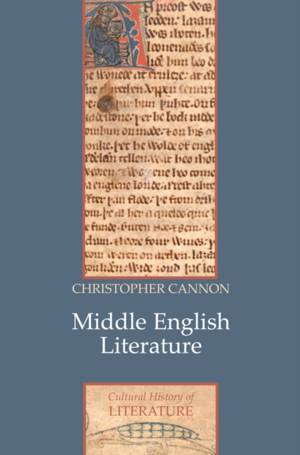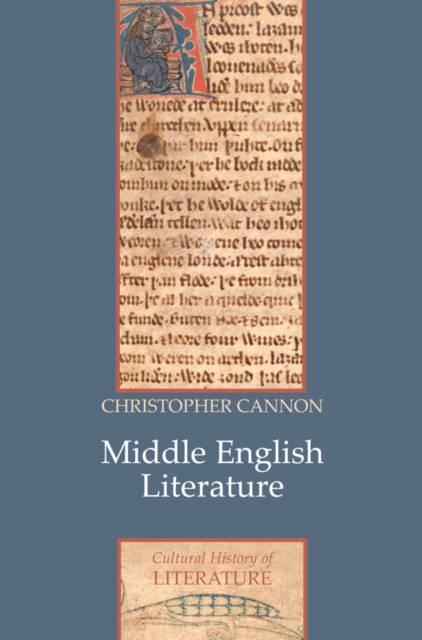
- Afhalen na 1 uur in een winkel met voorraad
- Gratis thuislevering in België vanaf € 30
- Ruim aanbod met 7 miljoen producten
- Afhalen na 1 uur in een winkel met voorraad
- Gratis thuislevering in België vanaf € 30
- Ruim aanbod met 7 miljoen producten
Zoeken
€ 111,45
+ 222 punten
Uitvoering
Omschrijving
This book provides a boldly original account of Middle English literature from the Norman Conquest to the beginning of the sixteenth century. It argues that these centuries are, in fundamental ways, the momentous period in our literary history, for they are the long moment in which the category of literature itself emerged as English writing began to insist, for the first time, that it floated free of any social reality or function.
This book also charts the complex mechanisms by which English writing acquired this power in a series of linked close readings of both canonical and more obscure texts. It encloses those readings in five compelling accounts of much broader cultural areas, describing, in particular, the productive relationship of Middle English writing to medieval technology, insurgency, statecraft and cultural place, concluding with an in depth account of the particular arguments, emphases and techniques English writers used to claim a wholly new jurisdiction for their work.
Both this history and its readings are everywhere informed by the most exciting developments in recent Middle English scholarship as well as literary and cultural theory. It serves as an introduction to all these areas as well as a contribution, in its own right, to each of them.
This book also charts the complex mechanisms by which English writing acquired this power in a series of linked close readings of both canonical and more obscure texts. It encloses those readings in five compelling accounts of much broader cultural areas, describing, in particular, the productive relationship of Middle English writing to medieval technology, insurgency, statecraft and cultural place, concluding with an in depth account of the particular arguments, emphases and techniques English writers used to claim a wholly new jurisdiction for their work.
Both this history and its readings are everywhere informed by the most exciting developments in recent Middle English scholarship as well as literary and cultural theory. It serves as an introduction to all these areas as well as a contribution, in its own right, to each of them.
Specificaties
Betrokkenen
- Auteur(s):
- Uitgeverij:
Inhoud
- Aantal bladzijden:
- 256
- Taal:
- Engels
- Reeks:
Eigenschappen
- Productcode (EAN):
- 9780745624419
- Verschijningsdatum:
- 1/04/2008
- Uitvoering:
- Hardcover
- Formaat:
- Genaaid
- Afmetingen:
- 160 mm x 236 mm
- Gewicht:
- 530 g

Alleen bij Standaard Boekhandel
+ 222 punten op je klantenkaart van Standaard Boekhandel
Beoordelingen
We publiceren alleen reviews die voldoen aan de voorwaarden voor reviews. Bekijk onze voorwaarden voor reviews.








